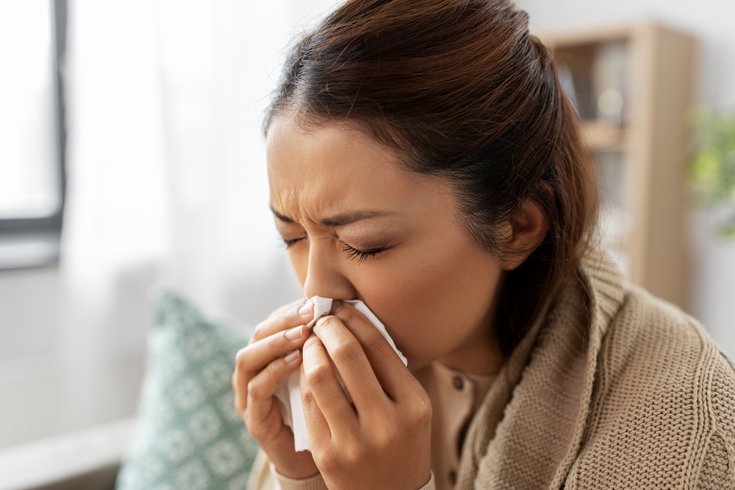
January 29, 2024
 ALEXANDRA KOCH/PIXABAY
ALEXANDRA KOCH/PIXABAY
Influenza and COVID-19 illnesses appear to have peaked shortly after the holidays, hospital trends suggest. But respiratory illness activity remains high in Pennsylvania and New Jersey.
COVID-19 and influenza cases appear to be dropping after a post-holiday peak, though the respiratory illnesses are still spreading at high rates, the latest health data shows.
Hospitalizations for COVID-19 and the flu have been declining in Pennsylvania and New Jersey in recent weeks, following a surge at the end of 2023, suggesting the worst of the respiratory illness season may have passed. But health experts caution that the flu has been known to surge back up, and there's now a new dominant COVID-19 variant, JN.1, in the U.S.
At the very least, health officials are confident that this year's respiratory season won't be any worse than last year's.
"CDC continues to anticipate this fall and winter respiratory disease season will likely result in a similar number of hospitalizations as last season," the Center for Disease Control said in a January update to its respiratory season outlook.
In Pennsylvania, there were 1,104 new hospital admissions for confirmed COVID-19 cases in the week ending Jan. 20, according to data from the CDC. That's down 19.5% from the previous week. New Jersey had 1,027 COVID-19 hospitalizations, a 21.7% drop. Hospitalizations also have declined 14% nationwide, according to the CDC.
Hospitals and doctors' offices in also are seeing declines in people with flu-like illnesses, though flu activity recently surpassed COVID-19 for the most emergency department visits. Pennsylvania recorded 7,091 flu cases, mostly caused by the H1N1 strain, in the week ending Jan. 20, state data shows. That's approximately 1,800 fewer cases from the previous week and about half the amount of cases reported during the last week of 2023.
In Philadelphia, emergency room diagnoses for the flu decreased among children and adults during the second week of the year, but went up among adolescents, according to the health department. Overall, flu diagnoses are down significantly since the end of the year.
Flu activity is still high in New Jersey, according to the state health department. Emergency department visits caused by flu-like illnesses have gone down about 40% since the first week of the year. But they're still higher than at the same point last year.
Still, while cases are down comparatively, it doesn't necessarily mean that respiratory illnesses have peaked.
"Just because we've seen cases go down a little bit in the last week doesn't mean we don't still have another bump in cases yet to come," Dr. Céline Gounder, an attending physician at Bellevue Hospital Center in New York City, told CBS. "Later in January, February is very often the peak of the influenza season, so just because we've see a recent drop in flu cases doesn't mean that there aren't more to come."